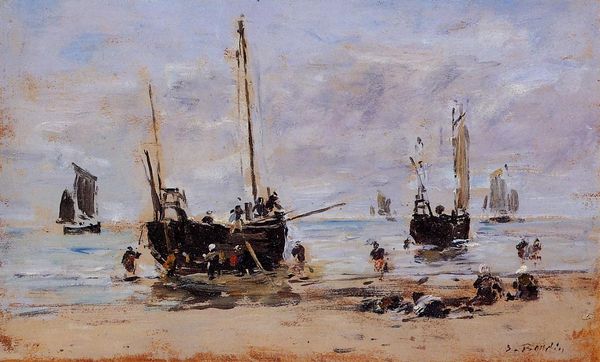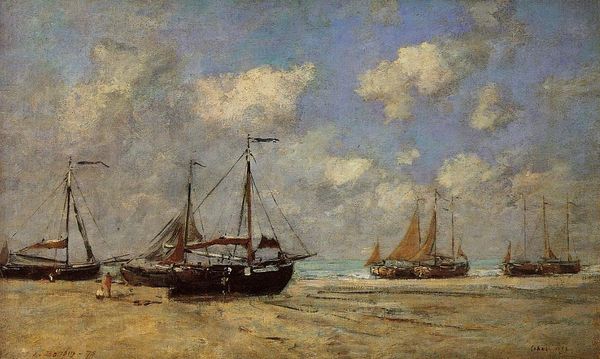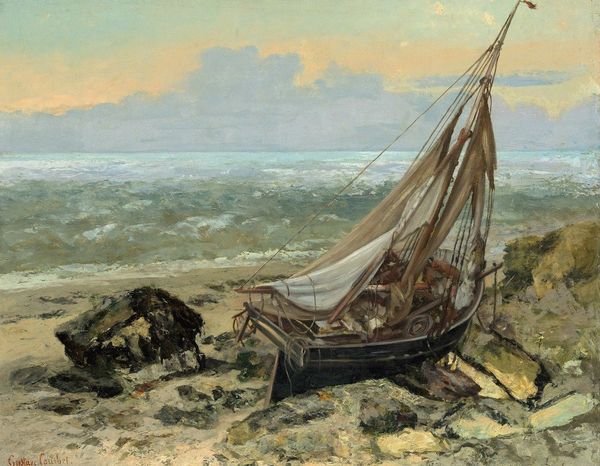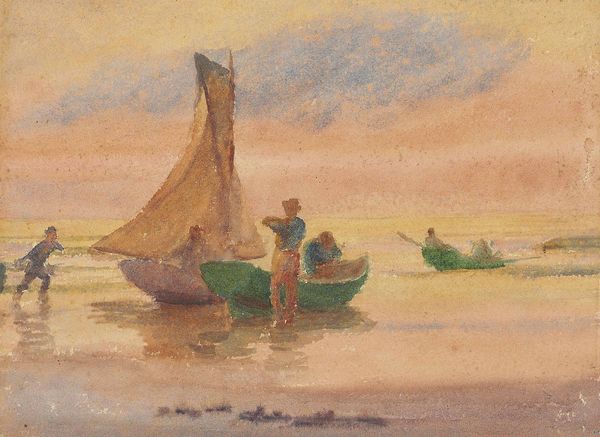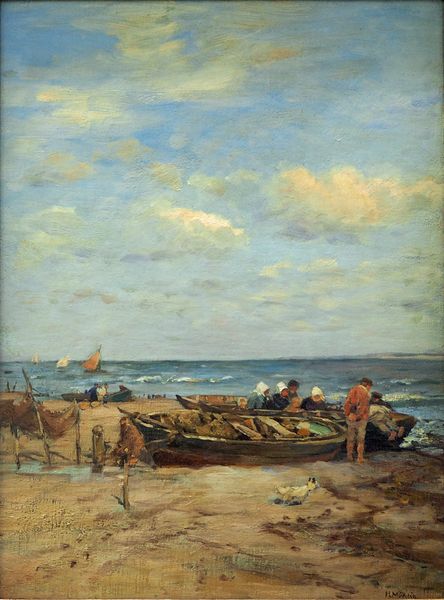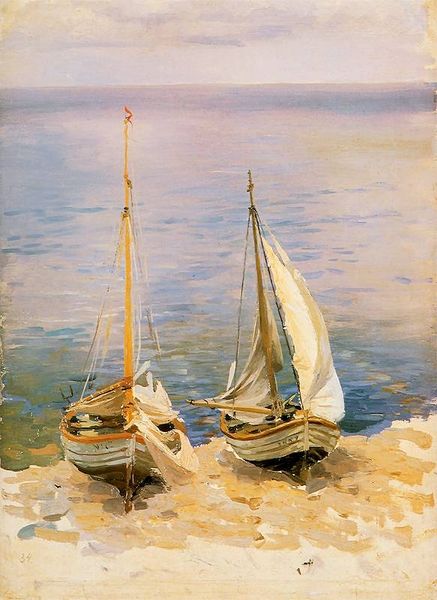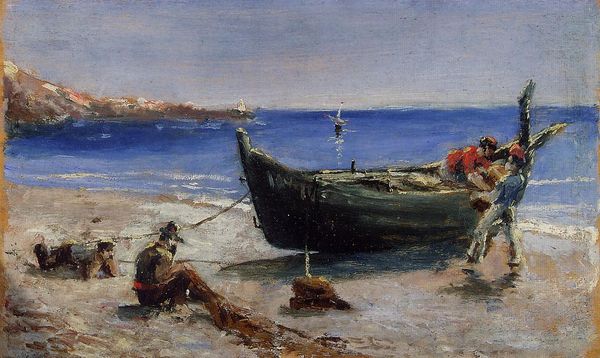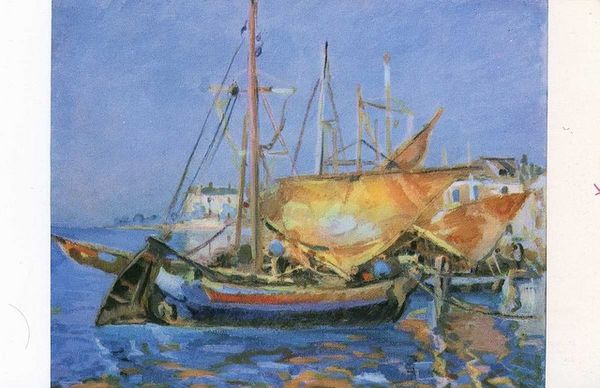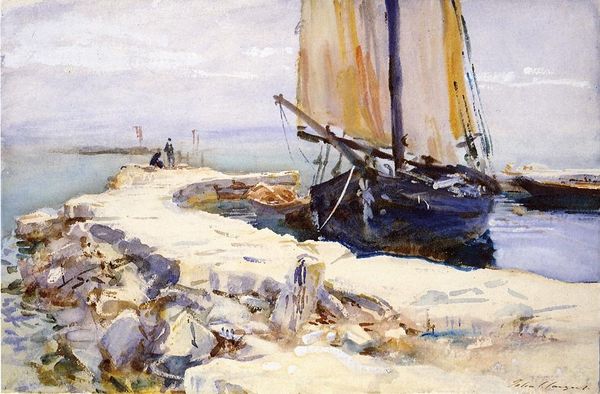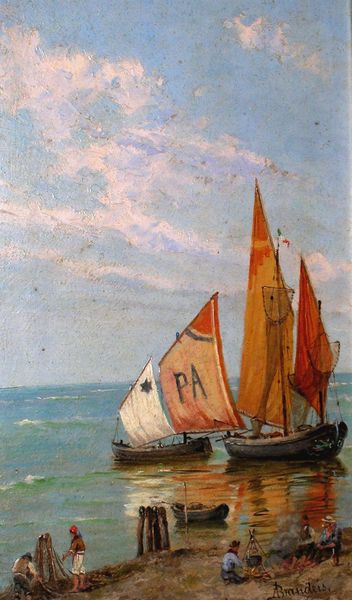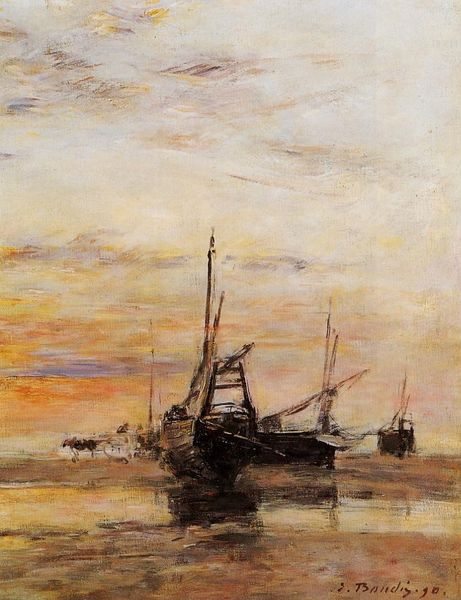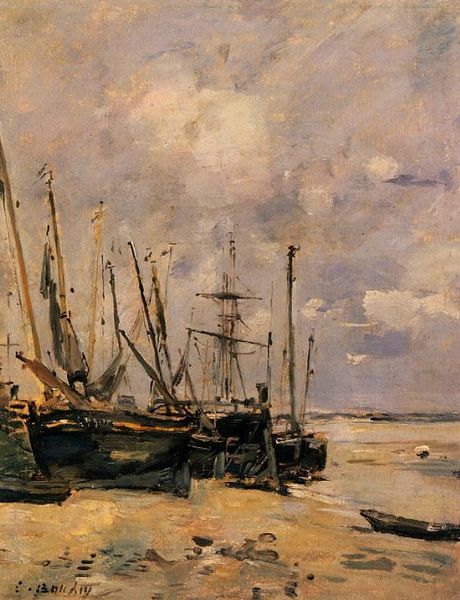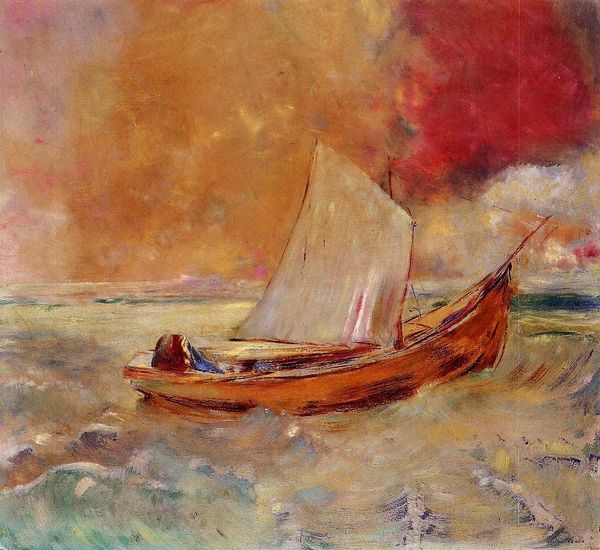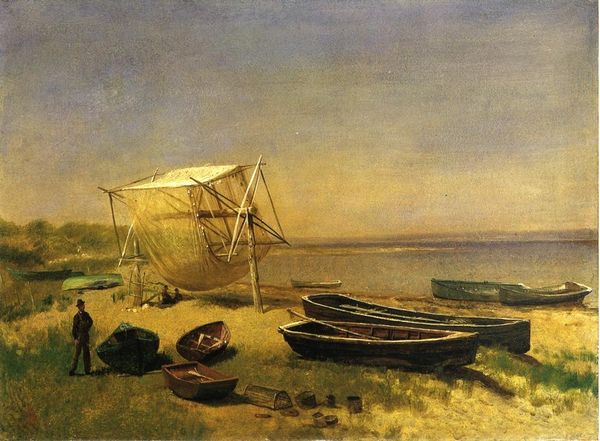
painting, oil-paint
#
boat
#
ship
#
painting
#
impressionism
#
oil-paint
#
landscape
#
oil painting
#
water
#
genre-painting
Copyright: Public domain
Editor: "Fishing Boats on the Deauville Beach," painted in 1866 by Gustave Courbet… there’s almost a melancholy to the scene, the boats beached and sails limp under a heavy sky. What stories do you think Courbet is trying to tell with this portrayal? Curator: It's fascinating to consider the social context. Courbet, a Realist, was deeply engaged with depicting everyday life and labor. This painting, made during a time of significant social upheaval and industrialization in France, reflects a romantic yet grounded view of working-class life. He seems interested in recording this traditional way of life, almost as if it's passing into history. Do you see that contrast between romanticism and realism in the portrayal of these vessels? Editor: Definitely. There’s a certain roughness in the brushstrokes, but the overall effect is quite poetic, especially the muted palette and hazy light. It's not idealized, but it’s certainly… sentimental. What do you make of the choice to focus on fishing boats in particular? Curator: Well, fishing was a central industry, but also more, something timeless. It’s also worth noting where this was shown, and who his likely patrons were: probably city dwellers with nostalgia for that perceived ‘simpler’ existence, increasingly divorced from that life themselves. That nostalgia then becomes a commodity, which is interesting. Editor: So, it’s almost like Courbet is providing a visual bridge between these worlds – the industrializing city and the traditional seaside – and tapping into the feelings that arise from that divide? Curator: Exactly! This painting, and others like it, became ways for people to connect – or perhaps, *feel* connected – to a world that was rapidly changing. Courbet is then participating in and commenting on this changing socio-political climate. Editor: I never thought about it that way! It makes the painting feel much more charged and less simply scenic. Curator: Right? Considering art's role in shaping and reflecting social change opens up new perspectives.
Comments
No comments
Be the first to comment and join the conversation on the ultimate creative platform.
